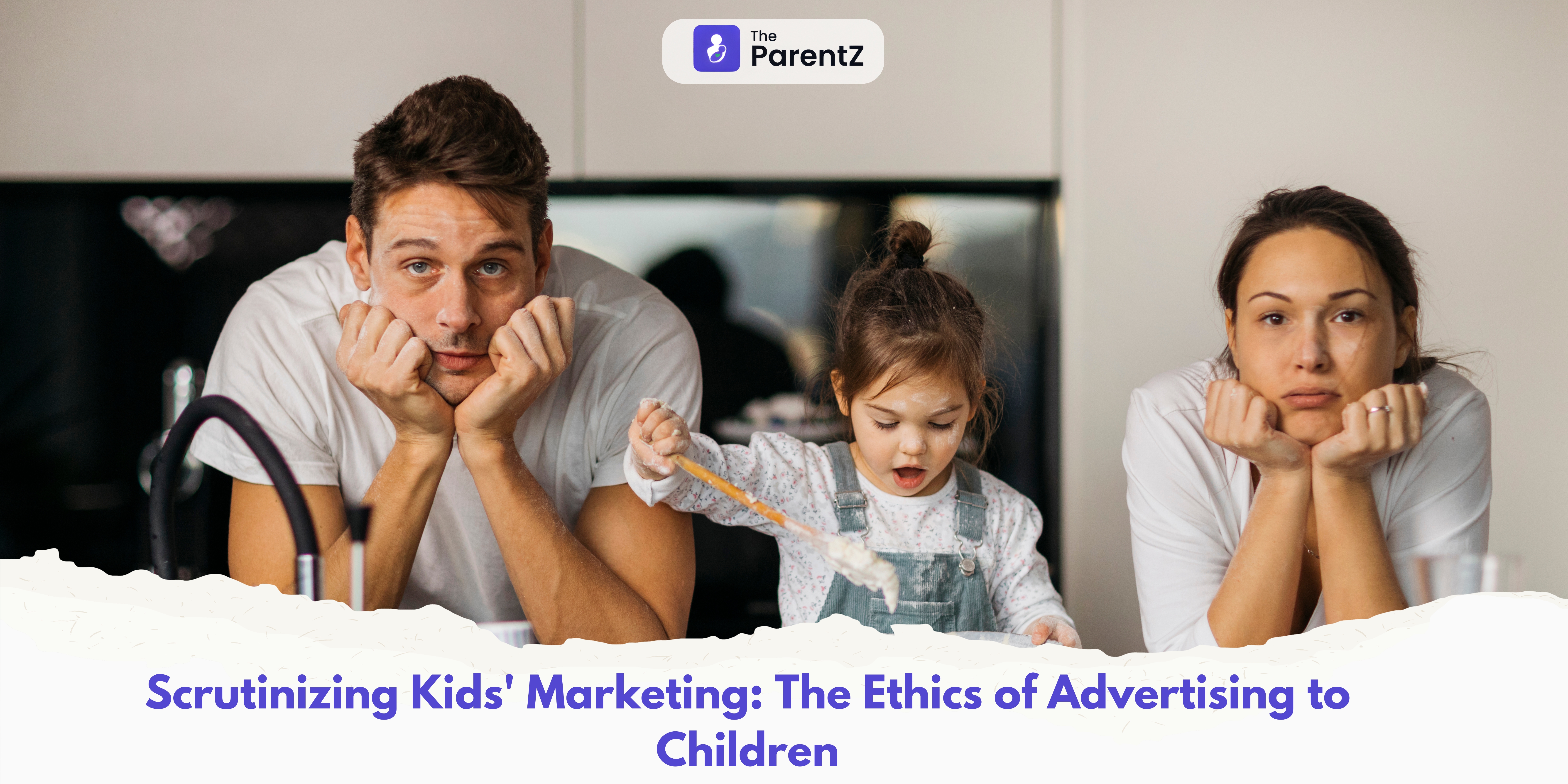In today’s digital age, children are more exposed to advertisements than ever before. From TV commercials to in-app ads and YouTube videos, marketing targeted at children has become ubiquitous. While advertising is a key driver for businesses, ethical concerns arise when these campaigns are aimed at young, impressionable audiences. This article delves into the ethical concerns surrounding children’s marketing and explores the responsibilities of advertisers, parents, and regulators in addressing these issues.
Why Is Marketing to Kids So Prevalent?
Children represent a powerful consumer demographic, influencing billions in family spending each year. But beyond their direct buying power, advertisers aim to cultivate long-term brand loyalty from a young age, making kids a prime target for various marketing strategies.
- Influence on Family Purchases: Kids hold considerable sway over family decisions, from the cereal bought at the grocery store to which vacation destination to choose. Marketers know that if they can win over a child, they can often win over the family.
- Building Brand Loyalty Early: Companies aim to hook consumers early in life, banking on the idea that children who grow up with their products will remain loyal customers as adults. The earlier a brand establishes this connection, the stronger the customer retention later.
- The Rise of Digital Platforms: With smartphones, tablets, and YouTube being widely accessible to children, digital marketing has rapidly evolved. From influencers promoting products in YouTube videos to embedded ads in games, marketers have direct access to children through platforms they engage with daily.
The Ethical Concerns of Marketing to Children
While the appeal of marketing to children is clear from a business perspective, there are significant ethical concerns that must be addressed. Children are uniquely vulnerable to advertising strategies, often unable to differentiate between content meant to entertain and content meant to sell.
- Manipulation: Children, especially younger ones, are not equipped to discern the persuasive intent behind advertisements. A cartoon character selling candy can easily be interpreted as part of the entertainment rather than an attempt to influence buying behavior. This lack of awareness makes children susceptible to manipulation.
- Targeting Vulnerabilities: Advertisers often target children’s emotions and vulnerabilities. Ads designed to make a child feel left out for not owning a particular toy or not eating a particular snack play on their desire for acceptance and happiness. This type of emotional manipulation can lead children to make demands for products they don’t actually need.
- Health Concerns: Marketing unhealthy products like sugary snacks or junk food can have long-lasting negative impacts on children’s health. Companies often promote these products as fun or cool, neglecting to highlight their health implications, which contributes to childhood obesity and other diet-related health issues.
- Fostering Materialism: Constant exposure to advertisements fosters a culture of consumerism in children. They begin to believe that happiness and self-worth are tied to what they own. As a result, they may constantly seek out the next big toy or gadget, prioritizing material goods over more meaningful experiences or relationships.
Case Example: Nestlé’s Maggi Noodles Controversy
A stark example of unethical practices in marketing targeted at children is the Nestlé Maggi noodles controversy. Maggi, a popular instant noodle brand heavily marketed to children and families, was caught in a scandal when excessive levels of lead were found in its products in India in 2015.
- Lead Contamination: Maggi noodles were advertised as a healthy snack for children, even though tests revealed they contained lead levels far beyond permissible limits. This created a significant health risk for children who were the primary consumers of the product.
- Shellac and Excessive Sugar: On top of the lead contamination, reports surfaced that Nestlé's products contained shellac (a resin secreted by insects) and more sugar than indicated on the packaging. The company’s failure to be transparent about these ingredients, while marketing the product as a wholesome snack, highlighted the deceitful nature of their advertising.
- Use of Palm Oil: Additionally, like many other processed food companies, Nestlé's Maggi uses palm oil in their products, which raises both health and environmental concerns. Palm oil is high in saturated fats and has been linked to various health issues, but is often used because it is cheap and increases shelf life.
Regulatory Differences: Europe vs. India
The Maggi controversy also highlighted the disparities in food safety regulations across countries. In the European Union, strict regulations ensure that products marketed to children undergo rigorous testing for safety and nutritional standards. Companies face heavy fines and product recalls if they fail to meet these regulations. For example, food products with excessive sugar or harmful additives cannot be marketed as healthy options.
- Strict European Regulations: In Europe, palm oil is highly scrutinized due to its environmental impact and health concerns. Advertisers are required to provide transparent labeling, and any misleading marketing claims can result in severe penalties. Furthermore, any potential health risks, such as high sugar content or the use of controversial additives, must be clearly stated on the packaging.
- Lack of Regulation in India: In contrast, India’s regulatory environment has historically been more lenient, especially when it comes to the marketing of processed foods. The lack of stringent oversight allowed companies like Nestlé to market products like Maggi noodles as healthy when, in fact, they contained excessive sugar, harmful additives, and toxic levels of lead. Although the Indian government eventually banned Maggi for a time, the incident exposed the need for stricter regulations, particularly in advertising to children.
How Can Parents Help Shield Their Kids?
Given the many ethical concerns with advertising to children, parents play a crucial role in shielding their kids from harmful marketing tactics. There are several steps parents can take to mitigate the influence of these advertisements:
- Limit Screen Time: Reducing the amount of time children spend in front of screens, especially platforms with heavy advertising like YouTube, can limit their exposure to ads. Encourage activities that don’t involve screens, such as reading, outdoor play, and creative hobbies.
- Teach Media Literacy: Helping children understand how advertising works can empower them to critically evaluate what they see. Teach them to question why a commercial makes a product look so appealing and how it might not reflect reality.
- Choose Ad-Free Content: Whenever possible, opt for ad-free content or subscription services that don't bombard children with marketing. Platforms like Netflix, PBS Kids, or subscription-based apps offer high-quality, educational content without advertisements.
What Role Should Advertisers Play?
Advertisers must take responsibility for the messages they send to children. Given the ethical concerns surrounding children’s marketing, there are several steps companies should take to ensure their advertising is ethical:
- Ethical Standards: Advertisers should adhere to strict ethical guidelines when targeting children. This includes being transparent about product ingredients, avoiding manipulative emotional appeals, and ensuring that advertisements are truthful and age-appropriate.
- Transparency in Digital Advertising: Digital advertising should clearly distinguish between content and commercials. For example, YouTube channels geared toward children should make it explicit when a video is sponsored or promoting a product.
- Healthy Messaging: Companies have a responsibility to promote products that encourage healthy habits. Rather than pushing junk food or sugary snacks, they should focus on promoting educational toys, creative tools, or nutritious food options that benefit children's development.
What Role Should Regulators Play?
Regulators have a crucial role to play in protecting children from unethical marketing practices. Governments and regulatory bodies must ensure that companies comply with standards that protect children from harmful advertising.
- Stricter Regulations in Developing Markets: Countries like India must implement stricter advertising regulations, similar to those in Europe. Advertisers should not be allowed to market unhealthy products as suitable for children, and clear labeling must be mandated.
- Enforcing Penalties: Regulatory bodies must enforce penalties for companies that violate advertising ethics. Whether it’s misleading nutritional claims or deceptive marketing tactics, companies must face consequences that deter them from engaging in such practices.
Conclusion
Marketing to children presents significant ethical challenges, especially when it involves manipulating their emotions, encouraging unhealthy habits, or promoting harmful products. The Nestlé Maggi case serves as a reminder of the serious consequences that can arise when advertisers prioritize profit over ethical responsibility. While parents and regulators play vital roles in protecting children, advertisers must also uphold ethical standards and prioritize the well-being of their young audience. By fostering media literacy, making informed choices, and enforcing stricter regulations, we can create a safer advertising landscape for future generations.








Be the first one to comment on this story.